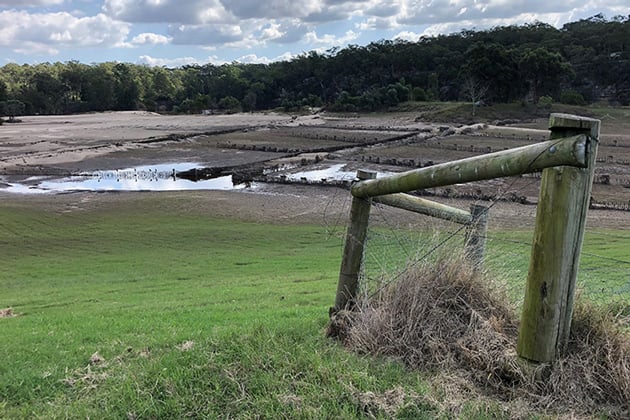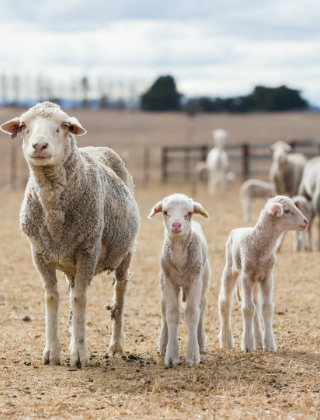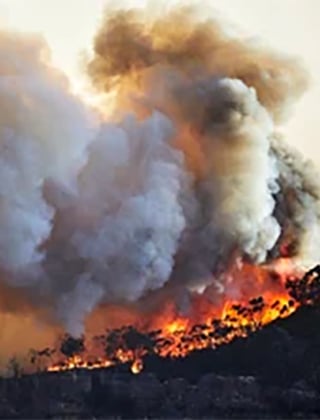Flood Recovery Resources

Flooding and evacuations across wool growing regions have been seen across many areas in recent times. Support exists in the planning for, during and after all natural disasters, including floods.
Flooding and evacuations across wool growing regions have been seen across many areas in recent times. Support exists in the planning for, during and after all natural disasters, including floods.
Below are various national and state links to support. For specific woolgrowing issues which often involve medium and longer term planning and support, the AWI-funded state extension networks and the AWI helpline freecall 1800 070 099 are also a point of contact for very localised information and support.
Services Australia Most Useful Information: https://www.servicesaustralia.gov.au/most-useful-information-for-natural-disaster
Emergency Assistance
Agriculture and Animal Services Hotline Line – 1800 814 647
Disaster Welfare Assistance Line – 1800 018 444
Disaster Customer Care Service – 13 77 88
The National Recovery and Resilience Agency (NRRA) have developed this blog page with information on support for primary producers in Victoria, Queensland, New South Wales, and Tasmania. The blog provides links to the respective state websites.
For NSW-based woolgrowers
- NSW DPI Floods hub
- NSW State Emergency Service (NSW) – 132 500
- NSW DPI/LLS Ag and Animal Services Hotline is the first point of contact for any ag and animal related inquiry by farmers affected by the floods - 1800 814 647
- A full list of current Animal Evacuation Centres is located at: dpi.nsw.gov.au/floods
- Animal owners are reminded that care of your animals including adequate food and water supply, any toys and medication, as well as full time supervision remains your responsibility once you arrive at the animal evacuation centres.
- Owners are also asked to bring appropriate identification for their animals.
For QLD-based members and their producers
- QLD State Emergency Service (QLD) – 132 500
- Tips for cleaning up after a natural disaster
For VIC-based woolgrowers
- Vic State Emergency Service – 132 500
- Flood Guide – Plan and Stay Safe
- Victorian Emergency Hotline – emergency animal welfare assistance – 1800 226 226
For Tas-based woolgrowers
- TAS State Emergency Service – 132 500
Animal Welfare
For NSW-based members and their producers
DPI and LLS are aiding landholders and communities with animal welfare-related issues resulting from the floods, including:
- Animal assessment and veterinary assistance
- Stock euthanasia and burial
- Emergency fodder and emergency stock water (where there is an immediate animal welfare concern)
- Livestock feeding and management advice
- Care of animals in evacuation centres
To request assistance, call the Agricultural and Animal Services Hotline on 1800 814 647
NSW DPI asks any primary producer affected by the floods to fill out the natural disaster damage survey. DPI uses these surveys to determine the scale and severity of the impact and what assistance and resources are required, where. Surveys can be submitted any time and can be accessed on a phone or computer via this link. Ag industry representatives can fill this in on behalf of farmers with their consent. It is important to not use this form for any requests for assistance.
For QLD-based members and their producers
For VIC-based woolgrowers
- For urgent animal welfare issues contact Agriculture Victoria on 1800 226 226
- Animal care after a flood
For TAS-based woolgrowers
- Natural Resources and Environment Australia – 6777 2115
Recovery Resources
The media release from the Federal Government announcement relating to funding to help flood-hit communities, farmers, small business and councils can be found here. The Farm Household Allowance program aids farming families experiencing financial hardship, no matter the cause of that hardship. For further information: Farm Household Allowance - Department of Agriculture
- Liaison Livestock Industry, Just-In-Time Training Video
- Farm Biosecurity: Safeguarding your stock before and after a natural disaster
For NSW-based members and their producers
- Disaster Recovery Payments are available for residents across 34 affected council areas in NSW. Anyone who has been seriously injured, have lost direct family members, have lost their homes or whose homes have been directly damaged, or whose major assets have been directly damaged may be eligible to receive a Disaster Relief Payment of $1,000 per adult and $400 per child. More details can be found here.
- Some farmers may qualify for Disaster Recovery Allowance. Disaster Recovery Allowance (DRA) is a short-term payment to help you if a declared disaster directly affects your income. The Disaster Recovery Allowance is available for a maximum of 13 weeks and is paid from the date you lose income as a direct result of the New South Wales floods in March 2022.
- Primary producers who are impacted by severe weather and flooding in a disaster declared LGA, are eligible to apply for grants up to $75,000 in value. More information can be found here.
- A natural disaster assistance transport subsidy is available to eligible farmers who are affected by a declared natural disaster event. This subsidy pays for the cost of transporting:
-
- fodder and/or water to an affected property
- stock to sale or slaughter
- stock to/from agistment.
More information can be found here.
- Primary producers directly affected by a natural disaster who are in urgent and genuine need for assistance, may be eligible for low interest loans of $130,000 for help to:
- Continue to operate your farm business for the next twelve months or until the next income is received
- Replace and repair damage caused to the property and associated improvements not covered by insurance
More information can be found here.
For QLD-based members and their producers
- QLD Disaster resilience and recovery resources
- Financial assistance for agribusinesses in natural disasters.
For VIC-based woolgrowers
- Financial assistance is available for primary producers affected by floods, storms or other disasters. Assistance is provided through the Disaster Recovery Funding Arrangements which includes Emergency relief payments as well as Emergency re-establishment payments. More information can be found here
- Financial Support – flood affected farmers
- Farm recovery after flood
- VicEmergency - 1800 226 226 - vic.gov.au
- Agriculture Victoria - 136 186
For TAS-based woolgrowers
- Assistance is currently available through the Disaster Recovery Funding Arrangements which include Emergency Assistance Grants of up to $1000, and Emergency Accommodation Assistance. More information can be found
- SES Tasmania
- Managing seasonal conditions - Flooding
- Accessing fodder in emergency situations
- Dam Safety Hotline 1800 316 377
State Emergency Services (SES) - 132 500 - ses.vic.gov.au
Stock problems after a flood
There are many things that you as a wool producer need to consider post flood in relation to your stock. For example, are your stock getting enough hay or grain in their ration to provide energy for late pregnancy or lactation? Have other stock been boxed in with yours? They may have footrot or lice? Other considerations must include flies, fleece, worms, weeds ect. The NSW Department of Primary Industries (DPI) have some great resources on this and the information can be found here.
Sheep health challenges in wet conditions
While warm, wet weather over most of southeastern Australia has been a welcome change after the prolonged drought, current seasonal conditions can bring on several health challenges for sheep. This article provides woolgrowers with advice on sheep health issues including scouring and worms, flystrike, footrot, clostridial diseases and more during these wet conditions. Download the article here.















